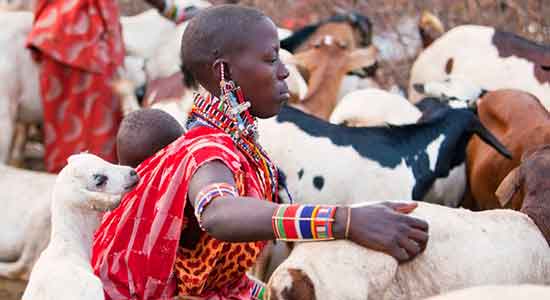 Culture and society
Culture and society
Culture and society is one of University of Copenhagen's core research areas in relation to developing countries.
The research area covers
- Cultural understanding and intercultural communication
- History and foreign languages
- History and identity
- Religion, sexuality and youth
Relevant centres and departments
Department of Anthropology
The Department of Anthropology represents a broad approach to anthropology. This diversity is expressed in regional foci, theoretical orientation and methodology, and results in a dynamic practice of anthropology, acutely aware of its own traditions and upcoming challenges. The research of the Department is divided in 4 researcher groups: 1) Culture, Mobility and Power, 2) Health and Life Conditions, 3) Nature, Environment and Climate, 4) Organisation and Economy.
Centre of African Studies
Research at the Centre of African Studies revolves around three thematically distinct yet interconnected research platforms: 1) Sovereignties and Citizenship, 2) Religion, State and Society and 3) Environment and Change. Individually and in combination, these platforms are concerned with the complex realities and core challenges and possibilities of a simultaneously localized and globalised Africa. At the same time, the aim is to generate knowledge and theory that is from the study of Africa but not necessarily always or simply about Africa.
Department of Cross-Cultural and Regional Studies
The department's research may be divided into two areas: 1) Cross-cultural Studies and 2) Regional Studies. The cross-cultural studies comprise: History of religions, Comparative cultural studies, Minority Studies and Archaeology. The regional studies comprise: Social studies and linguistic disciplines that also cover cultural history. We have experts in the following prehistoric languages: Sanskrit and Pali, Sumerian, Akkadian, Ancient Egyptian, Coptic, and Aztec. And in the following modern languages: Arabic, Hebrew, Persian, Turkish, Indonesian, Japanese, Korean, Tibetan, Chinese, Thai, Greenlandic, Modern Greek, Bulgarian, Polish and Russian.
Centre of Global South Asian Studies
The Centre of Global South Asian Studies (CGSAS) is a trans-disciplinary research centre facilitating research and teaching on South Asia at the University of Copenhagen.The Centre does not confine itself to the study of the region, rather explores the historical and contemporary connections within the Global South that underpin the modern formations of society, culture and politics within South Asia and its diaspora. CGSAS is located at the Department of Cross-Cultural and Regional Studies (TORS) at the University of Copenhagen. It draws researchers from across the faculties of humanities and social sciences.
Centre for Latin American Studies
The purpose of the Centre for Latin American Studies is to create an environment for research, teaching, and debate on Latin America at the University of Copenhagen across a wide range of disciplines, including history, sociology, politics, anthropology, language, literary studies and arts, and to contribute to the collaboration between researchers and students from other universities in Denmark and elsewhere who work with Latin America.
Relevant research units
Research Platform on Religion, State and Society
The research platform on Sovereignties and Citizenship is one of the three thematically distinct yet interconnected research platforms at the Center of African Studies. Central research questions under the platform concern: 1) The historical significance of world religions for the development of African societies, 2) Christianity and Islam as sources of identity, 3) The links between religion and political organization and mobilization and 4) The role of religious institutions as non-state actors and providers of public goods and services.
Researcher group on Nature and Environmental Change
It is considered impossible to think ’society’ without at the same time taking its natural surroundings and resources into account. The research at Department of Anthropology makes a significant contribution to showing how social and natural history are deeply infiltrated with each other. It does this through both empirical examples and theoretical considerations. At the same time, anthropology’s sense of itself as the study of ’local society’ is challenged, precisely because of these new global connotations. In 2009 the project Waterworlds was set up as part of the department.
Project examples
- Nation in Motion: Globalisation, Development and Governance in ‘New India'
